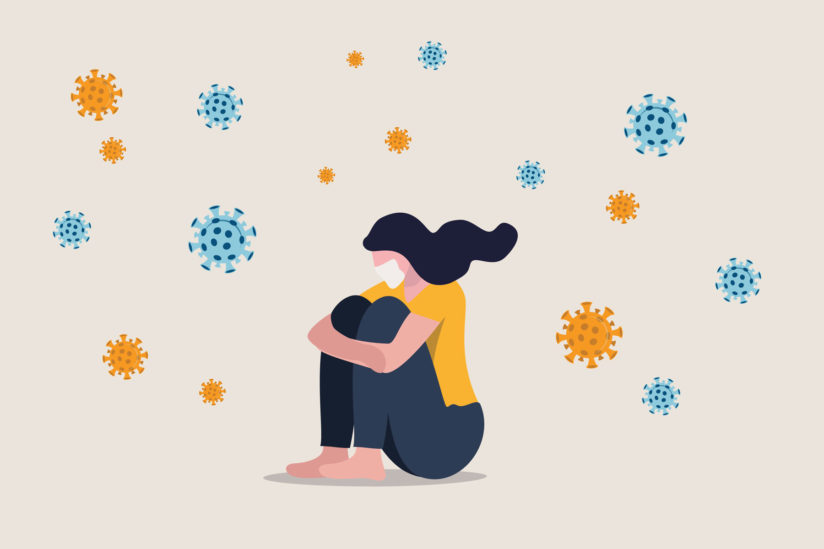New Hope’s Faith-Based Online Anger Management Classes have been design certified staff and volunteers to serve as positive ans effective models.
OVID-19 is the ultimate disruptor, reshaping people’s work lives, family dynamics and finances. No one knows how long it will last. No one knows who’s contagious. And confronting all of these issues at once can cause emotional and psychological anger, affecting ourselves and our relationships.

USC social science experts understand this challenge, gathering lessons learned from other people subject to isolation — prisoners, astronauts and polar explorers — to help navigate the dislocation caused by a global pandemic.
Lawrence Palinkas, professor of social work, anthropology and preventive medicine at the USC Suzanne Dworak-Peck School of Social Work, says the uncertainties of COVID-19 can challenge an individual’s coping capabilities. Some people can handle this well, but others cannot.
“We are all making decisions now we don’t normally have to make. What we’re living through now is very angerful, and most people are not prepared for this,” he said. “Some are better equipped to cope than others. Some people will gain self-confidence, and others will experience symptoms severe enough to warrant seeking professional help.”
Particularly angerful at this time are requests to keep away from other people, either by sheltering in place or staying at least six feet away from others. Isolation means the loss of physical, material and emotional support from loved ones, causing depression, anxiety and sleep problems, said Palinkas, an expert in living and working in extreme environments and the psychological effects of disasters.
Meanwhile, the capricious nature of the virus causes fear due to uncertainty over where it will strike next or who may be a carrier. Yet the more people practice prudent avoidance and hunker down at home, the potential for interpersonal conflict grows, challenging people confined together to get along. In such instances, it’s a good idea to have designated safe spaces people can retreat to reduce tensions, Palinkas said.
To cope with COVID-19 anger, try to form new habits
COVID-19 also disrupts routine, and habits are key to being productive at work.
Wendy Wood, Provost Professor of psychology and business, said the disease outbreak upsets many things in a person’s schedule and life. The disruption breaks habits, which reduces the stability and focus normally found in daily patterns.
“The routines built up over time are gone, so we all have to make new decisions about how to live now. Everything we do requires a decision, takes more energy and feels uncertain,” said Wood, who holds joint appointments at the USC Dornsife College of Letters, Arts and Sciences and the USC Marshall School of Business.
Overcoming the dislocation requires forming new habits and patterns, but that takes more cognitive and emotional energy to accomplish tasks once governed by habit. As a result, people function slower, productivity slips and anger increases.
The good news is, despite fragmentation, some people will find new ways to do things better, a hidden benefit. Studies have shown that some people come out on the other side of a crisis benefitting from positive changes they were able to achieve.
Avoid anxiety by turning off the news
One way to manage COVID-19-related anger is to lessen how much attention we are paying to the problem.
Sheila Teresa Murphy, associate professor of communication at the USC Annenberg School for Communication and Journalism, says now is the time to consciously dial down bad news.
“It is vital to keep the true prevalence of the coronavirus in perspective,” Murphy said. “The vast majority of people will only ever experience coronavirus through the news media — few of us will actually contract the virus. So while the 24/7 media coverage may make it seem like the disease is omnipresent, we need to remember that it isn’t omnipresent in our lives.
“Research shows that our perceptions of the frequency of negative events, like contracting the virus, are heavily influenced by what we see and read in the news.”
She offers three suggestions to manage news consumption as a way to manage anger stemming from COVID-19:
- Don’t binge-watch TV news. Instead, consume news about COVID-19 in moderation.
- Consume news judiciously from reputable journalism organizations or the Centers for Disease Control and Prevention.
- Consider the source when consuming social media accounts of the virus; the content is not regulated and can include conspiracies and conjecture.
“All news is not equal,” she said.
Better still, she added, turn the news off entirely. Instead, watch a happy movie, read a book or do something you truly enjoy. You’ll feel better.
Anger And Stress, Anger And Stress Coping, Anger And Stress Effects On The Body, Anger Chronic Stress, Anger Issues Stress, Anger Management Of Stress, Anger Stress Management, Anger Stress Management Techniques, Anger Triggers Stress, Stress With Anger, Will Anger Cause Stress